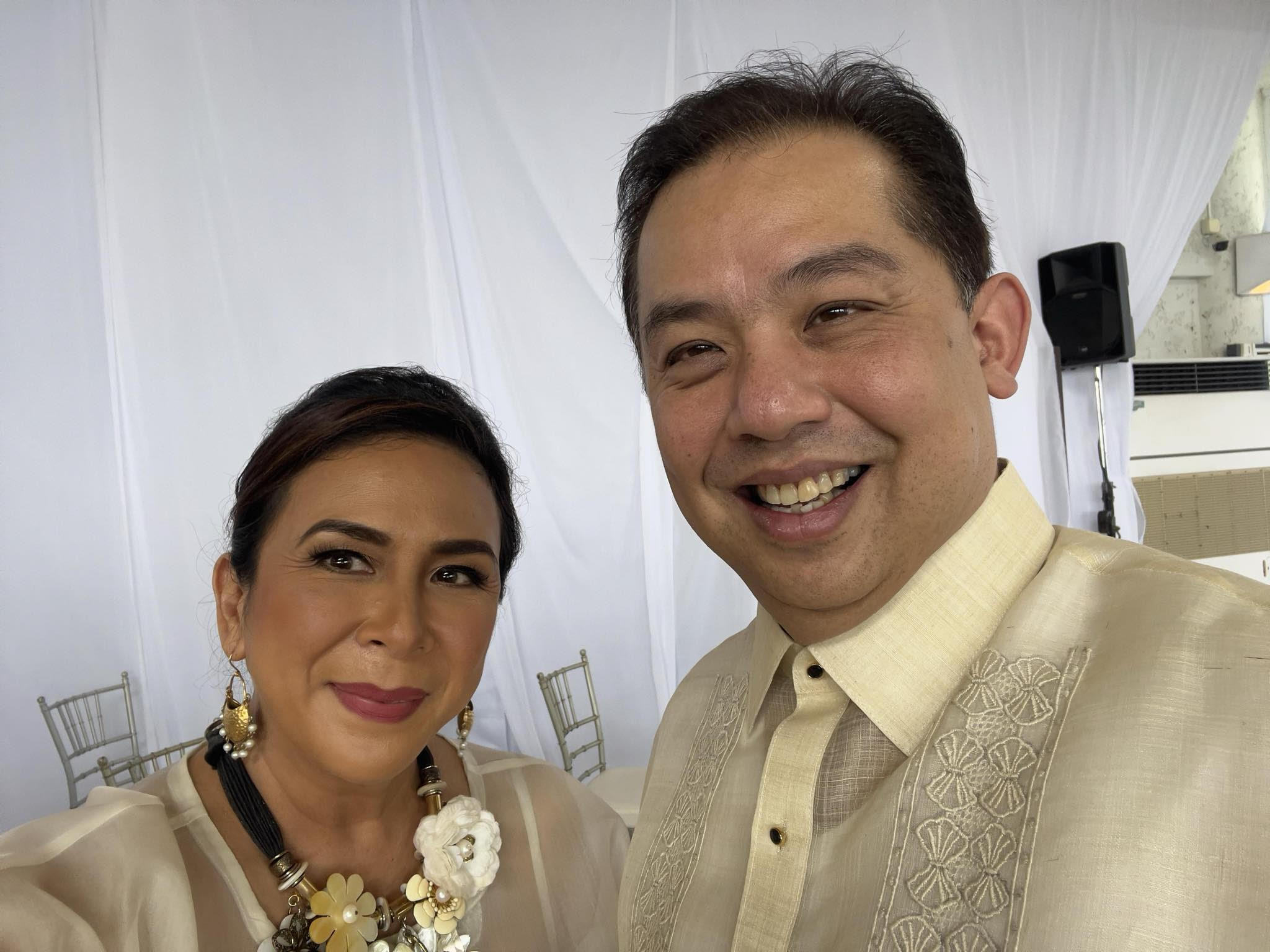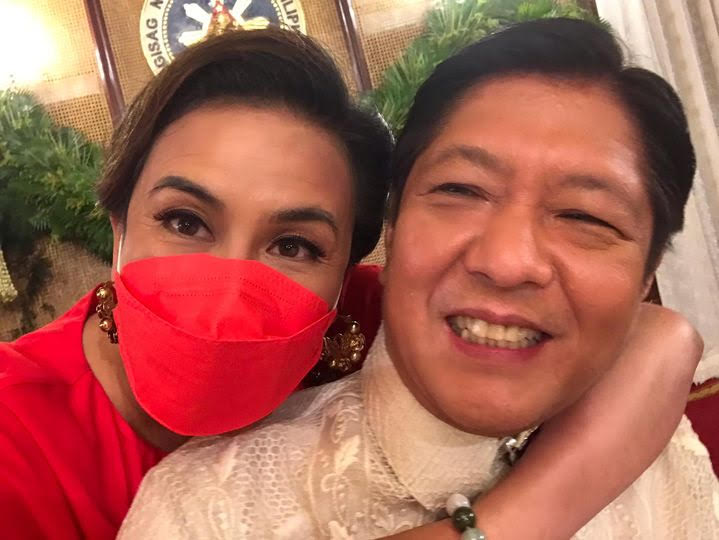Imee Marcos, Martin Romualdez, and my other warring cousins
The senator and the speaker are not the first in our family to disagree
At A Glance
- 'I was taught well by my father (the late President Ferdinand E. Marcos), "First there is God, then there is country, and then there is your family. So that order will have to be upheld."'

Well, that was a remarkable week.
Last Sunday, we saw two rallies by two camps. One gathering was a prayer rally against charter change led by former President Rodrigo Roa Duterte (PRRD) in Davao and the other was at the Quirino Grand Stand kicking off the Marcos administration’s Bagong Pilipinas campaign.
At the latter, President Ferdinand Marcos Jr. (PBBM) was accompanied by his wife the First Lady Louise Araneta-Marcos and the Speaker of the House Martin G. Romualdez (the speaker). Both gatherings were seen as a flexing of muscles of the power and influence by both camps.
The undercurrent for both rallies has been well-documented and reported in mainstream and social media, which sometimes highlighted
side topics like the jurisdiction of the International Criminal Court (ICC) over the Philippines, the wisdom and legitimacy of the People’s Initiative, and the alleged drug use by two presidents (one former and the current).
I’m not going to delve into these topics. I will leave it to the political pundits to dissect them. Expect more discussions, mostly heated, in the coming days or weeks.
The events of the past week have entered the surreal for me since most of the main actors involved are family, people I personally know, and people I talk to on a regular basis. In a previous life, I was a broadcast journalist for over a decade and yet the surrealness of it all still surprises me.

For instance, when I’m talking to the speaker, it’s all about Romualdez family heritage. When I talk to Senator Imee, its anything under the sun, but for the past two and a half years, it’s mostly the recovery and preservation of the documentary evidence of her father’s legacy. She has been very passionate about that, just as the speaker is passionate about the family heritage.
Passion is certainly a main ingredient in the Romualdez and Marcos clans.
The Romualdez family is no stranger to differing opinions among its members. The President Ferdinand Romualdez Marcos Jr., his sister the Senator Imee Romualdez Marcos (SIRM), and the Speaker of the House Martin G. Romualdez are all first cousins. They are my first cousins—my father Armando being the youngest brother of Imelda, (mother of PBBM and SIRM), and Benjamin a.k.a. Kokoy (father of Martin). But while it’s normal in our family life to have opposing opinions on certain things, it still seems so unreal to watch it unfold in the public space, even if many Romualdezes have served as civil servants since the mid- to late-1800s, some of whom served the Philippines in some capacity until 1986, only to do so again after a brief respite and to this day.

In 1871, my great grandfather Daniel Romualdez (1850-1909), at 21, was cabeza de barangay in Pandacan, Manila. In 1879, he moved his family to Leyte for health reasons but still managed to serve as cabeza de barangay, then gobernadorcillo on the island until the end of Spanish rule in 1898. Meanwhile, his uncles Silvestre and Manuel Romualdez served as gobernadorcillo in Felipe Neri, now Mandaluyong, in the late 1800s. As cabeza de barangay, Daniel’s main task was to collect taxes. When he was gobernadorcillo in Tolosa, Leyte, he was the leader of the town and the municipal judge, responsible for the appointments of its leaders. The gobernadorcillo was tasked with the administration of all judicial and economic matters.
Just to note, cabeza de barangay and gobernadorcillo were appointed positions and Spanish records would show appointments to municipal posts repeatedly came from the same families. These families were known collectively as the principalia, which should not be confused with the illustrados. The principalia or “noble class was the ruling and usually educated upper class in the pueblos of Spanish Philippines while the illustrados constituted the Filipino educated class during the Spanish colonial period in the late 19th century.
In a previous article, I wrote that “When Emilio Aguinaldo declared independence from Spain, Daniel was appointed the new consejero de policia or counselor of police on the island of Leyte. When the Philippines fell into American hands in 1900, he was made Justice of the Peace in Tacloban until his death in 1909.
His children, Norberto and Miguel, were also handed government positions during American rule. Their youngest brother, Vicente Orestes,
was a notary public at 20 years old and, upon Daniel’s death, took over his father’s position as Justice of the Court of First Instance in Tacloban in 1909. In the years after their father’s death, Norberto would become one of the Supreme Court Justices. He was later appointed as one of the Seven Wise Men tasked to draft the 1935 Philippine Constitution. Miguel would be the sixth mayor of Manila and the third son Vicente Orestes (my grandfather) would sit as Justice of the Peace in Tacloban and then serve as the dean
of Law at St. Paul’s College in Leyte.
In the span of a few years, my great-grandfather managed to hold positions in all three governments—the Spanish colonial administration, Aguinaldo’s revolutionary government, and the American regime.
After some research, I found that colonizers traditionally picked educated, well-entrenched members of the community to help convince the rest of the population to cooperate. The continued influence of these “political power holders,” however, depended on how well they could keep both the community and the colonizers happy.
Reading family documents written throughout more than a century, I found that not all was as smooth as we went from Spanish to Philippine revolutionary government to Ameri- can rule to Philippine Independence.
When the Philippine Revolution broke out, my great-grandfather Daniel was still gobernadorcillo of Tanauan, Leyte under Spanish rule but his son Miguel joined the Philippine Revolutionary Army, which is to say, Daniel was an official of the Spanish administration then while my grandfather’s brother Miguel was pro-Aguinaldo.
At the time of the Philippine-American War, my grandfather Vicente Orestes apparently was beguiled by the American democratic system and the law of America and denounced the antiquated and oppressive Spanish laws, which angered his father. In a letter, Daniel urged his son not to discount the laws and systems the Spanish colonizers introduced just because of his sentiments against the Spanish and the belief that Aguinaldo would not prosper since some of the Spanish laws had merit.
During the American colonial period, the brothers Norberto and Miguel were on opposite sides of the political fence when it came to independence. Norberto wanted Philippine Independence from our American colonizers while Miguel wanted the country to be declared a state of America.

I heard and read about so many stories of passionate disagreements in our family history that I wondered what it was like during family gatherings in those times!
Now I know! Feel na feel ko. I am fortunate to be able to fall back on the present as a testament that a family can stay intact, disagreements and all. That and a quick call to another first cousin, Tacloban Mayor Alfred Romualdez, who would always manage to allay any concerns brought by news reports on the disagreements within our family. As Senator Imee explained in a recent interview on ANC Channel, “There is no need to be cookie cutter, Xerox copies of each other. We can still work together.”
She also said, “This is no mere family squabble. We are talking about the republic and the Constitution, and the heart and soul of democracy here in our country... I was taught well by my father (the late President Ferdinand E. Marcos), ‘First there is God, then there is country, and then there is your family.’ So that order will have to be upheld.’”
As the family historian, I can attest that the Romualdez family has followed this adage throughout its long history serving the Filipino people.